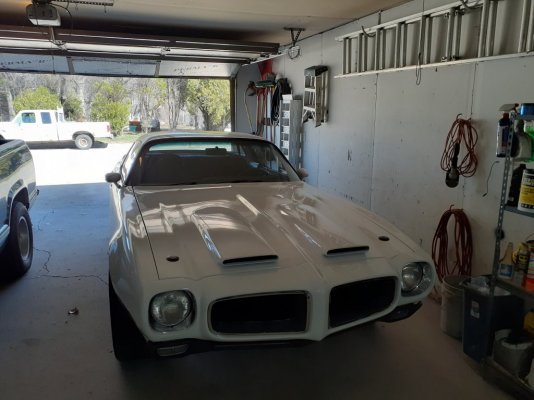TotalyHucked
Full Access Member
- Joined
- Feb 24, 2020
- Posts
- 4,553
- Reaction score
- 15,019
- Location
- Auburn, Georgia
- First Name
- Zach
- Truck Year
- 1985
- Truck Model
- Sierra 1500
- Engine Size
- 5.3
Yep, you're right. Got the brain fog today. Mine was DOD and I was expecting it to be VVT but found it wasn't on teardown. Agreed with everything, no matter what engine you go with, at least tear it down to the long block and replace all gaskets/seals and check the cylinder walls. But they're near bulletproof if they've been maintained properly.DOD and AFM are the same thing. DOD is what GM called it before the 2000's. It is now AFM(trademarked by GM), but everyone just calls it AFM/DOD. Late Gen III started to get DOD/AFM and then Gen IV got AFM and VVT in various mixes.
https://en.wikipedia.org/wiki/Active_Fuel_Management#:~:text=Active Fuel Management (formerly known,conditions to improve fuel economy.
I got an L9H for my 2011 Suburban for $1500 with ~150k on it. It is a non-AFM, VVT, all aluminum Flex-Fuel 6.2L. It has the casting to allow it to be DOD, but was not equipped as such from the factory. I bought about $1500 in new parts to put a TSP L92 Stage 1 VVT cam kit in it with new delphi LS7 lifters and new oil pump, bearings, piston rings and gaskets throughout. The bore was still in spec, so it got a deglazing hone and reused all of the stock internals. Heads got checked and it needed all new exhaust valve guides and new springs from the TSP kit installed. You can mechanically block off the AFM holes to prevent any oil pressure bleed by ordering a National/Timken LM603049 bearing and taking it apart. The rollers are the exact size to fit in the AFM tower holes and it only costs ~$13 or less for the whole bearing.
https://www.summitracing.com/parts/...4HXwB2OGKb3C093eSmeE3g73kC6yivyhoCh1wQAvD_BwE
For simplicity you can stay with the older iron block engines and run a 5.3/60 with up to 200k miles with no issues. Best if you can find a 6.0/4l80 combo and just do a quick cleanup and replace any leaking gaskets like front/rear mains and oil pan gasket while out of the vehicle. Put a decent mild cam in it like a truck norris and you'll probably have many years of trouble free driving with the mileage most of us are putting on our trucks. Our 2011 Suburban is my wifes daily driver and our vacation trailer tow vehicle. It is sitting at 230k miles right now and still going strong. I've only ever had to replace motor mounts, spark plugs, and one exhaust manifold bolt on the engine in the 6 years and ~100k miles I've owned it. It has needed to have the transmission and differentials rebuilt in that time... but the engine has been rock solid.
Since my motor had 104k and I knew it ran well, I didn't expect to find any surprises. I pulled it down to a long block so I could put all fresh gaskets/seals and head gaskets on it. I popped one main cap and one rod cap off to check the bearings in mine, they were perfect. Also checked the thrust of the crank (was perfect), the cylinder walls looked great, the whole bottom end turned like butter so I didn't go any further. New gaskets top to bottom, new lifter trays, LS7 lifters, chromoly pushrods, BTR stage 4 V2 truck cam (at the time), LS2 valvesprings and buttoned it back together. Ran strong for 27k miles before I tore it back down to do a rear main (the one seal I didn't replace) and bigger cam upgrade.
The one thing I will advice against is buying LS7 lifters. I bought mine pre-pandemic and they've been fine but we've seen a ton of failures since then with the LS7s, no matter whose they are. If I needed a set now, I'd run either Johnson or Morel. They pay alot more attention to metallurgy and QC than GM/Delphi do with their mass production.






